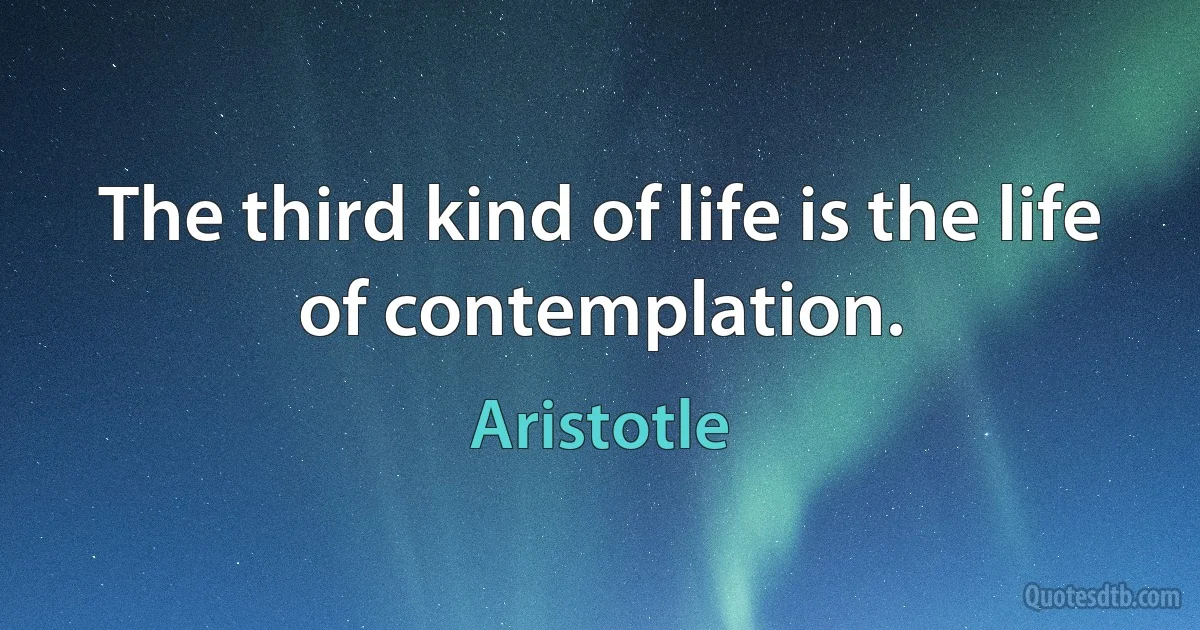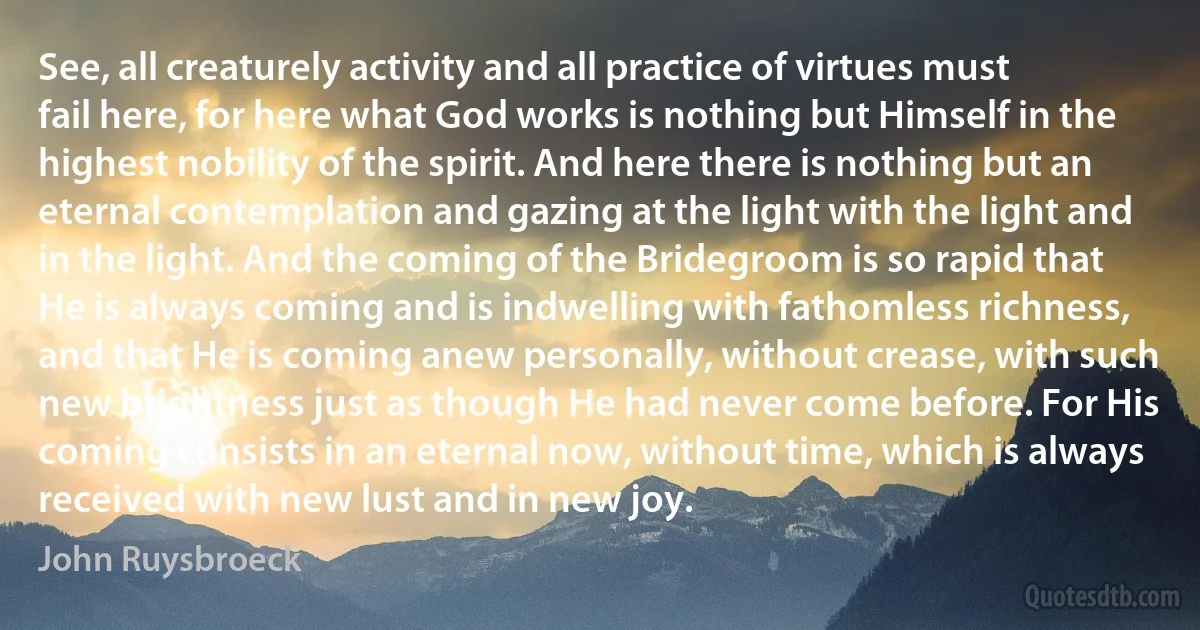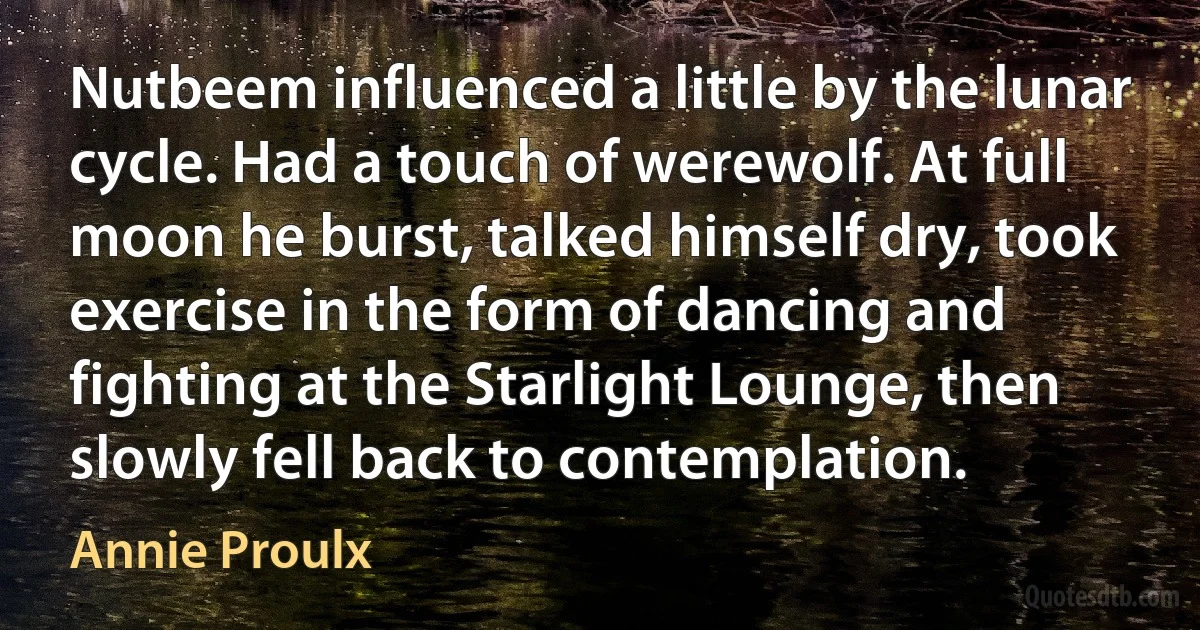Contemplation Quotes - page 6
Most English-speaking people ... will admit that cellar door is "beautiful," especially if dissociated from its sense (and from its spelling). More beautiful than, say, sky, and far more beautiful than beautiful...Well then, in Welsh, for me cellar doors are extraordinarily frequent, and moving to the higher dimension, the words in which there is pleasure in the contemplation of the association of form and sense are abundant.

J. R. R. Tolkien
I thought that as I had failed in the contemplation of true existence, I ought to be careful that I did not lose the eye of my soul; as people may injure their bodily eye by observing and gazing on the sun during an eclipse, unless they take the precaution of looking at the image reflected in the water, or in some similar medium. ...I was afraid that my soul might be blinded altogether if I looked at things with my eyes or tried by the help of my senses to apprehend them. And I thought that I had better had recourse to ideas, and seek in them truth in existence. I dare to say that the simile is not perfect-for I am far from admitting that he who contemplates existence through the medium of ideas, sees them only "through a glass darkly," any more than he who sees them in their working and effects.

Socrates
And its seeing is Unconditioned,
Being without manner,
And it is neither thus nor thus,
Neither here nor there;
For that which is Unconditioned hath enveloped all,
And the vision is made high and wide.
It knows not itself where That is which it sees;
and it cannot come thereto, for its seeing is in no wise,
and passes on, beyond, for ever, and without return.
That which it apprehends it cannot realise in full,
Nor wholly attain, for its apprehension is wayless,
and without manner,
And therefore it is apprehended of God in a higher way than it can apprehend Him.
Behold! such a following of the Way that is Wayless,
Is intermediary between contemplation
In images and similitudes of the intellect,
And unveiled contemplation
Beyond all images in the Light of God.

John Ruysbroeck
The Spirit of God now speaks within our own spirit in its hidden immersion: ‘Go out, into a state of eternal contemplation and blissful enjoyment after God's own manner.' All the richness which is in God by nature is something which we lovingly possess in God –and God in us– through the infinite love which is the Holy Spirit... There the spirit is caught up in the embrace of the Holy Trinity and eternally abides within the superessential Unity in a state of rest and blissful enjoyment. In this same Unity, considered now as regards its fruitfulness, the Father is in the Son and the Son in the Father, while all creatures are in them both.

John Ruysbroeck
There, the Father with the Son and all the beloved are enfolded and embraced in the bond of love, that is to say, in the unity of the Holy Spirit. It is this same unity, which is fruitful according to the bursting-out of the Persons and in the return, an eternal bond of love, which can nevermore be united. And all those who know themselves to be bound therein must remain eternally blissful. They are all rich in virtues and enlightened in contemplation and simple where they rest enjoyably, for in their turning-in, the love of God reveals itself as flowing out with all good and drawing in into unity and is superessential and without mode (method or system) in an eternal repose. And so they are united to God, by intermediary, without intermediary, and also without difference.

John Ruysbroeck
See, the bliss and the joy which this Bridegroom brings in His coming are fathomless and incommensurable, for He Himself is that bliss and joy. And therefore, the eyes with which the spirit contemplates and gazes upon its Bridegroom are so widely dilated that they will never again be closed. For the gazing and contemplation of the spirit remain eternally fixed on the hidden revelation of God, and the comprehension of the spirit is so widely dilated for the coming of the Bridegroom that the spirit itself has become the wideness which it apprehends. And so God is apprehended and seen with God; in this all our blessedness resides.

John Ruysbroeck
This contemplation establishes us in purity and in limpidity above all our understanding, for it is a special enrichment and a heavenly crown, and in addition, an eternal reward for all virtues and for all lives. And no one can arrive at this by means of science or subtlety, nor by any practice, but only he whom God wishes to unite with His Spirit and to illumine with Himself may contemplate God, and nobody else. The hidden divine nature is eternally active, contemplating and loving with respect to each person, and always enjoying the embrace with each person, in unity of essence.

John Ruysbroeck
The inner lover of God, who possesses God in enjoyable rest, and himself in devoted, working love, and his entire life in virtues with justice, this inner person then comes, by means of these three points and the hidden revelation of God, into a God contemplating life, at least the lover who is pious and just, whom God in His freedom wishes to choose and to elevate to a superessential contemplation in divine light and according to the way of God.

John Ruysbroeck
Very similar were the views expressed by Raymundus of Sabunde or Sabeyde, a Spaniard of the fifteenth century, and professor at Toulouse about the year 1437. In his theologia natural is, which he handled in a speculative spirit, he dealt with the Nature of things, and with the revelation of God in Nature and in the history of the God-man. He sought to prove to unbelievers the Being, the trinity, the incarnation, the life, and the revelation of God in Nature, and in the history of the God-man, basing his arguments on Reason. From the contemplation of Nature he rises to God; and in the same way he reaches morality from; observation of man's inner nature. This purer and simpler style must be set off against the other, if we are to do justice to the Scholastic theologians in their turn.

Georg Wilhelm Friedrich Hegel
The body is placed under the earth, and after a certain period there remains no vestige even of its form. This is that contemplation of inexhaustible melancholy, whose shadow eclipses the brightness of the world. The common observer is struck with dejection of the spectacle. He contends in vain against the persuasion of the grave, that the dead indeed cease to be. The corpse at his feet is prophetic of his own destiny. Those who have preceded him, and whose voice was delightful to his ear; whose touch met his like sweet and subtle fire: whose aspect spread a visionary light upon his path - these he cannot meet again.

Percy Bysshe Shelley
The tranquility and peace that a scholar needs is something as sweet and exhilarating as love. Unspeakable joys are showered on us by the exertion of our mental faculties; the quest of ideas, and the tranquil contemplation of knowledge; delights indescribable, because purely intellectual and impalpable to our senses.

Honoré de Balzac
Love is like some fresh spring, that leaves its cresses, its gravel bed and flowers to become first a stream and then a river, changing its aspect and its nature as it flows to plunge itself in some boundless ocean, where restricted natures only find monotony, but where great souls are engulfed in endless contemplation.

Honoré de Balzac
Faith and reason are like two wings on which the human spirit rises to the contemplation of truth; and God has placed in the human heart a desire to know the truth- in a word, to know himself- so that, by knowing and loving God, men and women may also come to the fullness of truth about themselves.

Pope John Paul II
Magic is a faculty of wonderful virtue, full of most high mysteries, containing the most profound contemplation of most secret things, together with the nature, power, quality, substance and virtues thereof, as also the knowledge of whole Nature, and it doth instruct us concerning the differing and agreement of things amongst themselves, whence it produceth its wonderful effects, by uniting the virtues of things through the application of them one to the other.

Heinrich Cornelius Agrippa
I don't wish to defend everything that has been done in the name of Utopia. But I think many of the attacks misconceive its nature and function. As I have tried to suggest, utopia is not mainly about providing detailed blueprints for social reconstruction. Its concern with ends is about making us think about possible worlds. It is about inventing and imagining worlds for our contemplation and delight. It opens up our minds to the possibilities of the human condition.

Hans Magnus Enzensberger



